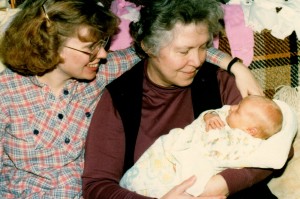
Sam (left), Rod, Laurel and Olivia
Laurel, Rod, Sam, Olivia, dear friends and family,
May the peace of God, which surpasses all understanding, keep our hearts and minds in Christ Jesus. Amen.
I’ve organized my thoughts for today’s message around the stanzas of “The Servant Song,*” the hymn printed on panel 4 of your wedding bulletin.
The first stanza goes like this:
Will you let me be your servant, let me be as Christ to you?
Pray that I may have the grace to let you be my servant, too.
Rod tells of Laurel’s hospitality, saying, “She’s always looking after someone, taking care of someone. Laurel’s favorite question is, ‘Can I get you something?’”
Laurel speaks of Rod’s helpfulness. “Rod fixes things,” says Laurel. “He brings his toolbox and fixes things.”
On Rod’s first visit to Laurel’s home, he noticed a door was off one of her cupboards. The first gift Rod gave Laurel were hinges to fix that cupboard. Laurel says, “That was the best. gift. ever.” Those hinges came wrapped in thoughtfulness.
Hospitality, helpfulness and thoughtfulness are signs of grace-filled service.
So, too, is mutuality. Grace-filled service is give and take. It is reciprocal without keeping score.
Our hymn makes the mutuality point with the line, “Pray that I may have the grace to let you be my servant, too.”
To receive gracefully requires trust and vulnerable openness.
Laurel and Rod met in college and had one best-forgotten date. Thirty-some years later, Rod reached out to Laurel through email. Two years ago, after months of long-distance communication, Rod drove to visit Laurel. As Rod was about to leave, he witnessed a meltdown— the raw side of family dynamics usually unseen by company. Embarrassed and weary, Laurel walked with Rod out to his car.
Saying goodbye, Laurel rested her head on Rod’s chest.
That vulnerable moment was transformational. In that moment, Laurel and Rod stopped being just college acquaintances and started falling in love.
Continue reading →
 Like we invented it
Like we invented it




